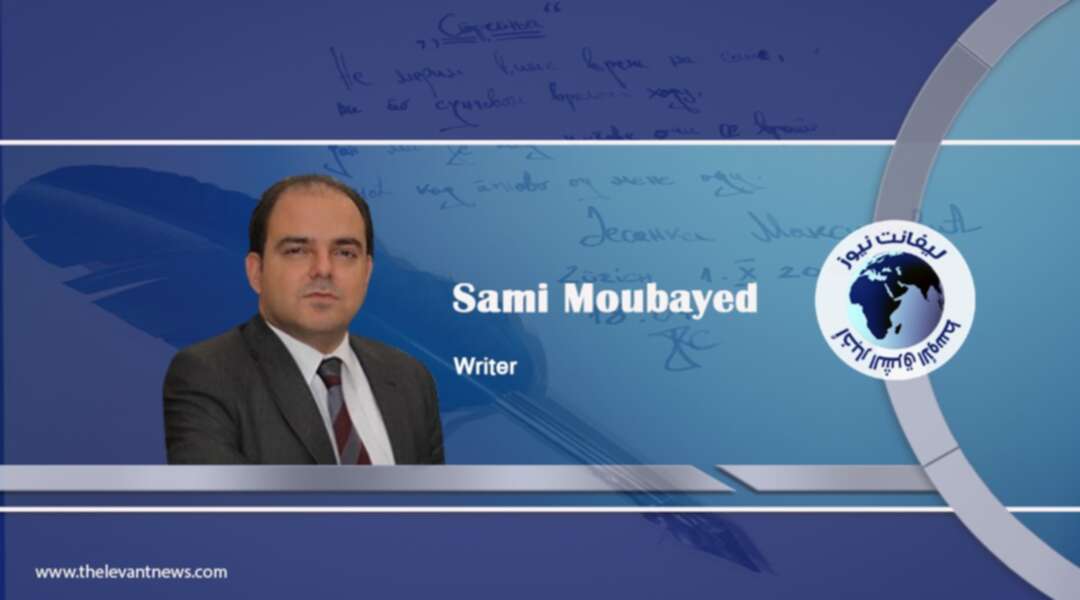-
Hezbollah’s offer to Najib Mikati

The government of Lebanese Prime Minister Najib Mikati has not met since October 2021. Political parties refuse to convene, objecting to the continuation of judge Tarek Bitar at his job as lead investigator in the Beirut port probe of August 2020, which killed over 220 people and tore down half the city. Bitar has famously and courageously taken on the country’s entire political elite, summoning top politicians to court on the charge of “criminal negligence.” The list of accused covers the entire political spectrum and it includes ex-Prime Minister Hassan Diab (protégé of Gibran Bassil), ex-Interior Minister Nouhad Machnouk (protégé of Saad al-Hariri), ex-public works minister Yusuf Finianos (protégé of Suleiman Frangieh), and former ministers Ghazi Zeiter and Ali Hasan Khalil (members of the Amal Movement and allies of Hezbollah). It’s a cross-sectarian list of Sunnis, Shiites, and Maronite Christians, explaining why everybody is unhappy with Tarek Bitar and wants him removed.
Parliament Speaker Nabih Berri is particularly upset, given that two of the accused are part of his inner circle (Zueiter and Khalil). Not only has Bitar accused them of “criminal negligence,” but he has also issued an arrest warrant for Khalil, striking a raw nerve within the Shiite community. Last October, supporters of Amal and Hezbollah demonstrated in Tayyouneh, at the Ayn al-Rummaneh neighborhood where the Lebanese civil war started back in 1975. They were demanding the removal of Judge Bitar when unknown gunmen (believed to be members of Samir Gagegea’s Lebanese Forces) opened fire at them, killing six Shiites. That case remains open and largely unresolved, with Amal and Hezbollah demanding justice for their dead while the Lebanese Forces insists that Gagegea will only accepted to be interrogated over the violence if a similar warrant is issued for Hezbollah chief Hasan Nasrallah.
Politically, Najib Mikati has nothing to do with the Beirut port explosion since he was out of office when it happened on 4 August 2020. None of his party members (known as the Azm Movement) were members in the Diab government, yet he finds himself obliged to carry its burden, as repeated legal cases have been made for the dismissal of Bitar since he became premier last September. A previous judge, Fadi Sawwan, had bene removed from the probe by the very same politicians now under legal scrutiny, and they believe that they can bring down Bitar in similar fashion. They have tried distracting the probe by referring the accused to a higher court away from Bitar’s jurisdiction, which has never met and never taken a binding-decision in its life.
Hezbollah’s offer
Mikati is undoubtedly sympathetic with the victims of the port explosion, yet he realizes that in order for him to stay in power, he needs to be on good terms with the political parties that are asking for Bitar’s removal, mainly Hezbollah, Amal, and the Free Patriotic Movement of Gibran Basil and President Michel Aoun. Collectively, they hold 15 out of 33 seats in his government and should they decide to collectively resign, then that would bring down his cabinet with a breeze.
Before the Christmas holidays, Hezbollah and Amal made an offer to the Prime Minister. They would agree for the cabinet to re-convene in exchange for a decree stripping Bitar of his duties. Mikati badly needs a cabinet session—and more—in order to settle a score of unfinished business related to upcoming parliamentary elections, talks with the IMF, Covid-19, and resumption of maritime talks with Israel. The most pressing of his demands is the stalled talks with the IMF, which he hopes, will secure a much needed $9-10 billion USD loan for Lebanon. His cabinet had inherited a sharp shortage of American dollars from the Diab government, along with a financial meltdown that has destroyed the country’s once thriving banking sector.
Mikati’s difficult position
Will Mikati take up Hezbollah and Amal’s offer? Or a better question might be: can he accept it? Dismissing Bitar would ruin Mikati in the eyes of the Lebanese people, who are hailing the 48-year-old judge as a national hero. Keeping him at his post, however, means no cabinet sessions and possibly, no cabinet altogether. When accepting office in September 2021, Mikati conditioned that he stays in power for what remains of Michel Aoun’s presidency, up to October 2022 and beyond. He made it clear that he won’t be an interim prime minister charged solely with supervising early parliamentary elections, now fixed for 27 March 2022.
His cabinet took off with a bumpy start, due to controversial statements made by Information Minister George Qordahi, which triggered a boycott of Lebanon by Saudi Arabia and the United Arab Emirates. Qordahi was criticized for pro-Houthi remarks made on al-Jazeera TV, and under immense pressure, was forced to step down on 3 December. That did not solve the crisis and Lebanon remains at daggers-end with Riyadh, whose leader consider the premier as too weak to stand up to Hezbollah influence.
Mikati is no opponent of Saudi Arabia but finds himself facing the impossible task of walking the tightrope between Riyadh and Tehran. Neither the Saudis are making that it easy for him, and nor is Hezbollah. Shortly after the crisis erupted with George Qordahi, his foreign minister Abdullah Bou Habib said: “If they want the head of Hezbollah, we, as Lebanon, cannot give it to them.” He added that Hezbollah was a main component of Lebanese politics and denied claims that it was practicing any hegemony over Lebanon.
This month, however, Mikati was forced to distance himself from Hezbollah after its secretary-general Hasan Nasrallah delivered gave a fiery speech on 3 January addressing Saudi King Salman, saying: “Your highness the king, the terrorist is (the side) that exported ISIS ideology to the world and they are you.”
This time, Mikati could no longer mince his words or stand neutral, firing back at Hezbollah for the first time since September: “For God’s sake, have mercy on Lebanon and the Lebanese and stop the hateful sectarian and political rhetoric.” He quickly added: “Nasrallah’s comments do neither represent the Lebanese government nor the majority of Lebanese.”
This most recent standoff remains ripe and open to all possibilities. Hezbollah media outlets are trashing the premier, accusing him of failing to stand up for them against repeated Saudi criticism. If Mikati is unable to solve the snowballing crisis with Hezbollah, then chances are that they will soon back out on his government, which will automatically lead to its downfall. Otherwise, he still has the option of swallowing his pride, retracting his comments, and accepting Hezbollah’s offer. That would require the dismissal of Tarek Bitar in exchange for Hezbollah and Amal accepting to remain part of the government and to sign off a cabinet session after a three month freeze on its activity.

BY: Sami Moubayed
You May Also Like
Popular Posts
Caricature
BENEFIT Sponsors BuildHer...
- April 23, 2025
BENEFIT, the Kingdom’s innovator and leading company in Fintech and electronic financial transactions service, has sponsored the BuildHer CityHack 2025 Hackathon, a two-day event spearheaded by the College of Engineering and Technology at the Royal University for Women (RUW).
Aimed at secondary school students, the event brought together a distinguished group of academic professionals and technology experts to mentor and inspire young participants.
More than 100 high school students from across the Kingdom of Bahrain took part in the hackathon, which featured an intensive programme of training workshops and hands-on sessions. These activities were tailored to enhance participants’ critical thinking, collaborative problem-solving, and team-building capabilities, while also encouraging the development of practical and sustainable solutions to contemporary challenges using modern technological tools.
BENEFIT’s Chief Executive Mr. Abdulwahed AlJanahi, commented: “Our support for this educational hackathon reflects our long-term strategic vision to nurture the talents of emerging national youth and empower the next generation of accomplished female leaders in technology. By fostering creativity and innovation, we aim to contribute meaningfully to Bahrain’s comprehensive development goals and align with the aspirations outlined in the Kingdom’s Vision 2030—an ambition in which BENEFIT plays a central role.”
Professor Riyadh Yousif Hamzah, President of the Royal University for Women, commented: “This initiative reflects our commitment to advancing women in STEM fields. We're cultivating a generation of creative, solution-driven female leaders who will drive national development. Our partnership with BENEFIT exemplifies the powerful synergy between academia and private sector in supporting educational innovation.”
Hanan Abdulla Hasan, Senior Manager, PR & Communication at BENEFIT, said: “We are honoured to collaborate with RUW in supporting this remarkable technology-focused event. It highlights our commitment to social responsibility, and our ongoing efforts to enhance the digital and innovation capabilities of young Bahraini women and foster their ability to harness technological tools in the service of a smarter, more sustainable future.”
For his part, Dr. Humam ElAgha, Acting Dean of the College of Engineering and Technology at the University, said: “BuildHer CityHack 2025 embodies our hands-on approach to education. By tackling real-world problems through creative thinking and sustainable solutions, we're preparing women to thrive in the knowledge economy – a cornerstone of the University's vision.”
opinion
Report
ads
Newsletter
Subscribe to our mailing list to get the new updates!



















